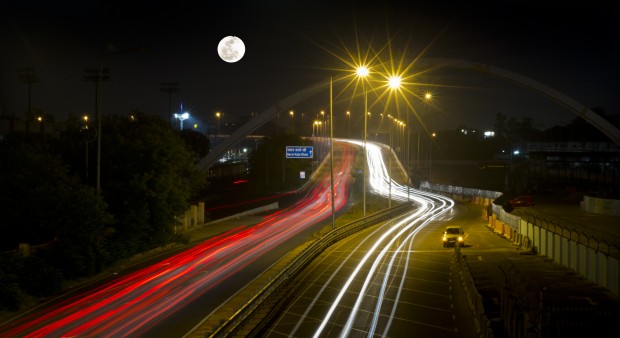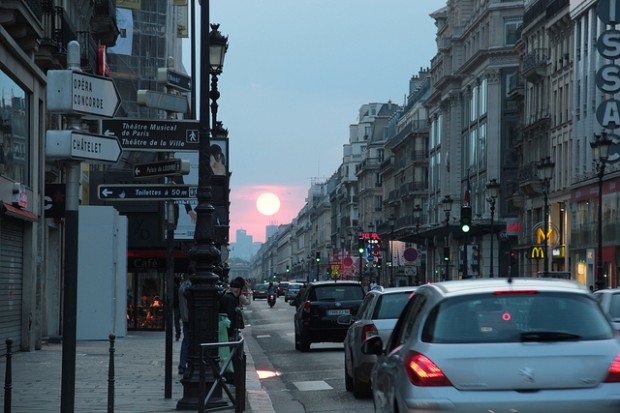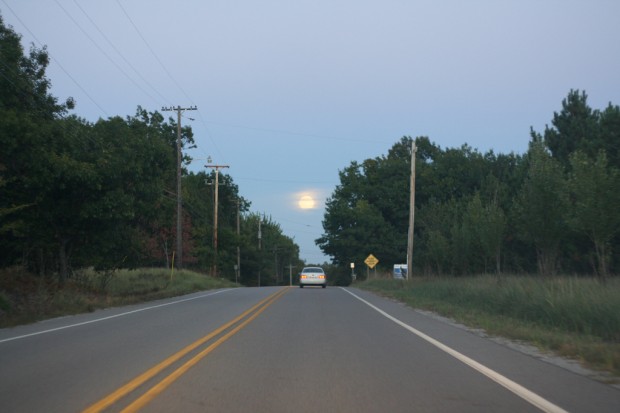When it comes to photography, our moon is often in the focus. People love to make astrological photography especially getting great scenes of the stars, our milky way, aurora borealis (the northern lights) and of course the moon and the sun. The moon is different every day of a lunar cycle which is around 29.5 days. Starting from the new moon then maturing to the full moon and then slowly going off to the new again.
The skill you need to get a great moon photo is really high. First you need to think about the light, then the long exposure and the movements. With long exposure photos it is almost always necessary a post production. To fixing of the blurs of the natural movement of the moon and the other objects that are in the scene.
Delhi, India

Image by Rajarshi MITRA via Flickr
Paris, France

Taking some great photos of the moon can always be a great experience especially if you pick the right spot and if the moon is in state of a blue moon, when it is full moon and closest to the earth. This event is rare and extraordinary but the name and the color blue has nothing to do with the its color. It is just an expression.
Moon Road

Image by John VanderHaagen via Flickr
Holterman Tom, Marinette, Wisconsin
Image by HeyGabe WW via Flickr
Road to the Moon, Greece
Image by Thanasis Papathanasiou via Flickr
Elgin, Nebraska
The Rolling Hills of Idaho
Image by Justin Kern via Flickr
Moonlit Ardnamurchan, Portuairk, Scotland
Image by Jon Douglas via Flickr
Moonset on March 4, 2007, Outside Katy, Texas
Image by Tom Haymes via Flickr
Moon rise over the Hume, Yass Valley, New South Wales, Australia
Image by Tim Hughes via Flickr
Take me to the Moon
Image by Roman Vanur via Flickr
Super Moon over Hells Canyon, Bakers County, Oregon
Image by Baker County Tourism via Flickr
Marsilly, Poitou-Charentes, France
Image by Etienne Valois via Flickr
Newton Grove, North Carolina
Image by Craig Ladd via Flickr
